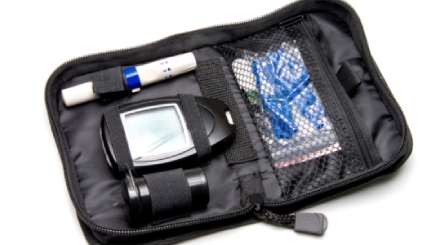Does Your Diabetes Drug Increase Your Risk of Pancreatitis?
 If you take the drugs sitagliptin (Januvia) or exenatide (Byetta) to improve your diabetes wellness, you may be harming your wellbeing in other ways. This is according to a new report, published in the journal Gastroenterology, which found a possible link between both of the type 2 diabetes drugs and pancreatitis and cancer of the pancreas, and one of the drugs might also cause thyroid cancer.
If you take the drugs sitagliptin (Januvia) or exenatide (Byetta) to improve your diabetes wellness, you may be harming your wellbeing in other ways. This is according to a new report, published in the journal Gastroenterology, which found a possible link between both of the type 2 diabetes drugs and pancreatitis and cancer of the pancreas, and one of the drugs might also cause thyroid cancer.
From a search of the FDA’s adverse event database’s reports from 2004 to 2009, the researchers found that patients taking sitagliptin or exenatide had a significantly higher chance of developing the diseases, compared to those whose diabetes was treated with other therapies. According to Dr Peter Butler, director of the Larry L. Hillblom Islet Research Centre at UCLA and a study co-author, the reason that they decided to look at the link between pancreatitis and cancer and the diabetes drugs was because animal studies have already shown the pancreatic duct growth-promoting properties of the medications. Your pancreatic ducts are tubes that carry digestive juices to your gut.
Butler, who is also a member of UCLA’s Jonsson Comprehensive Cancer Centre commented, ‘This is a concern if it happens in humans since it might be expected to increase the risk for pancreatitis and pancreatic cancer. While the FDA data base has limitations, it does have advantages in being very large, openly accessible and independent from companies that market the drugs.’ Butler also noted that more studies need to be done to ensure that the now widely-available type 2 diabetes drugs aren’t putting patients at high risk for pancreatic cancer.
If you are diabetic, the two drugs work to your lower blood sugar levels by promoting the action of a hormone in your gut known as glucagon-like peptide 1 (GLP-1). However, the diabetes medication Januvia was found to increase your risk of pancreatic cancer 6-fold, while Byetta might almost triple the risk, and was also associated with thyroid cancer risk.
Yet it’s important to bear in mind that the FDA warns data extracted from the adverse event reports may not be reliable because of lack of information and reporting bias. The study authors also noticed that randomised, controlled clinical trials (considered the “gold standard” for research) are needed before they can assert that type 2 diabetes drugs raise the risk of pancreatitis or cancer of the pancreas or thyroid.


Comments are closed.